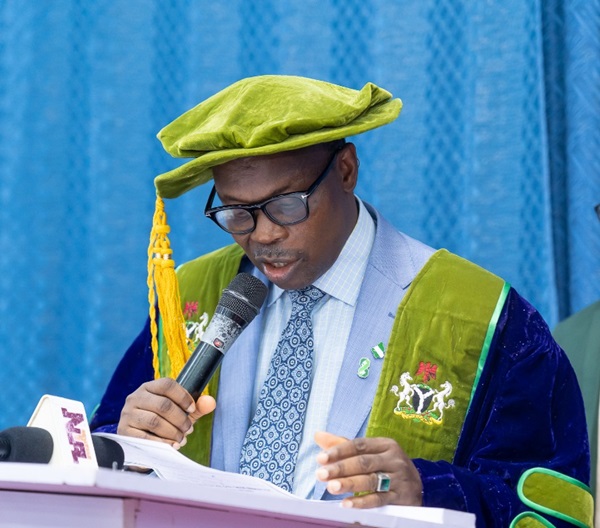
The Federal Government of Nigeria has called for deeper collaboration and strengthened healthcare regulation across Africa, as the continent faces escalating health challenges.
This advocacy came on Tuesday in Abuja, during the opening ceremony of the Association of Medical Councils of Africa (AMCOA) workshop, an event that has brought together healthcare regulators and policy leaders from across the region.
The Minister of State for Health and Social Welfare, Dr. Iziq Salako delivered a passionate call to action in his opening remarks, urging African nations to urgently confront critical issues weakening their health systems. He emphasised the need for innovative, collective solutions to address concerns such as rampant health workforce migration, incidents of practitioner malpractice and poor data management – all of which undermine the efficiency and credibility of healthcare delivery.
“Africa currently stands at a crossroads, facing unprecedented challenges in our healthcare systems,” Salako warned. “From pandemics to the increasing burden of non-communicable diseases and the troubling exodus of our skilled health workforce, the time to act is now.”
The minister lamented that while Africa produces some of the world’s most skilled health professionals, many are lured abroad by more attractive opportunities, leaving local health systems stretched and underserved. He stressed that African countries must urgently explore ways to retain their health workforce while also ensuring that, where migration does occur, it is managed in a way that benefits both the sending and receiving nations.
“We must find ways to incentivise our workforce to stay,” Salako urged, “but also ensure that migration benefits both the countries of origin and destination.”
He advocated for the establishment of legally binding agreements between African nations and countries receiving African healthcare professionals. Such agreements, he argued, should require destination countries to contribute meaningfully to the development of health infrastructure in Africa.
Salako also turned the spotlight on healthcare credentialing, stressing that robust and transparent credentialing systems are vital for maintaining public trust in health services. Ensuring that only qualified and properly vetted practitioners are allowed to provide care, he said, is fundamental to patient safety and public confidence.
On practitioner malpractice, the minister called for balanced approaches that uphold accountability while offering rehabilitation pathways for healthcare professionals. He maintained that fair and enforceable disciplinary systems were essential for maintaining the integrity of medical practice while still giving room for genuine professional reform.
Data management emerged as another critical theme in Salako’s address. He stressed that effective healthcare regulation is impossible without accurate, timely data. “Without accurate data, we cannot track workforce trends or respond effectively to health challenges,” he said, underscoring the importance of embracing digital health platforms to enable better decision-making and responsive governance.
Reaffirming Nigeria’s commitment under President Bola Tinubu’s leadership, Salako highlighted that the government is making substantial investments in health sector governance, infrastructure and regulatory frameworks. He assured participants that healthcare remains a national priority, viewed as both a human right and an urgent development goal.
“The health of all Nigerians is a matter of right and urgency,” Salako declared. He encouraged the participants to fully engage in the workshop and commit to crafting practical, implementable strategies that could be adopted across Africa.
Chairman of the local organising committee (LOC), Prof. Afolabi Lesi also welcomed participants warmly to Nigeria’s capital. Expressing gratitude for the opportunity to host this pivotal event, he noted that this is Nigeria’s first time hosting an AMCOA workshop, an achievement made possible by the support of the AMCOA leadership and general assembly.
“On behalf of the Medical and Dental Council of Nigeria, I warmly welcome you to our peaceful and beautiful capital city, Abuja,” Lesi said, adding that as regulators, they carry the weighty responsibility of ensuring the highest standards in training and professional practice.
Lesi highlighted the pressing issues facing African health systems, including workforce shortages, infrastructure deficits, and health workers’ burnout. He stressed that these challenges require united action from regulators and healthcare professionals alike.
“As regulators of healthcare professionals, it is our responsibility to ensure that training and practice standards align with international best practices while also reflecting the unique challenges of our region,” he noted.
He particularly emphasised the urgency of addressing health workforce migration, warning that the continued loss of skilled personnel and the burnout of those remaining pose severe threats to the sustainability of healthcare systems.
“We are not unmindful of the major threats facing our health systems, such as health workforce migration and the burnout of those left behind,” Lesi cautioned. “We hope that through this workshop, we will discuss these issues and develop strategies to mitigate their effects.”
Science Nigeria reports that the AMCOA workshop is a vital platform for fostering collaboration, sharing knowledge, and building integrated healthcare regulatory systems across Africa. The gathering has brought together regulators, commissioners and international partners with the shared goal of strengthening healthcare systems and improving resilience across the continent.
As the workshop continues, participants are expected to deliberate on concrete strategies to advance healthcare regulation and leadership, with the ultimate aim of ensuring that Africa’s health systems are better equipped to meet the growing demands of their populations.

